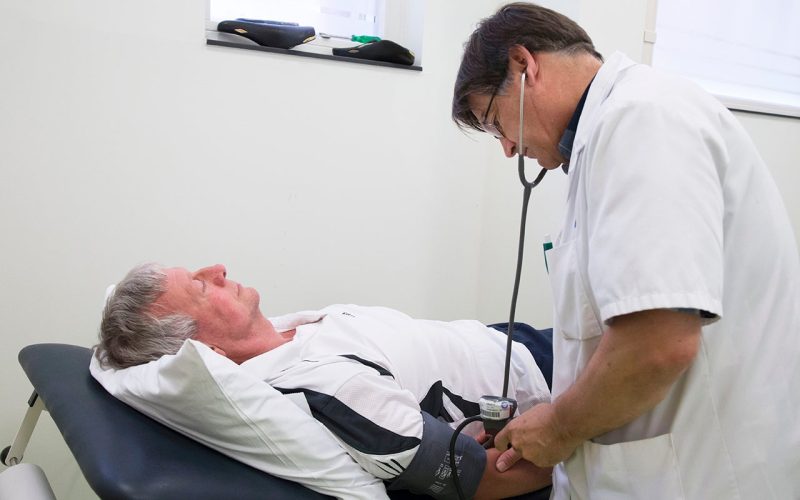The Heart Foundation today awarded four UMC Utrecht researchers with Dekker grants. The personal research grants for talented scientists go to Heleen Westland, Tim van de Hoef, Steven Hageman and Mark Bakker. A total of over 1.5 million euros has been made available to these researchers. These grants will enable the scientists to conduct research into cardiovascular diseases in the coming years.
About 240,000 people in the Netherlands have heart failure. In daily life, they often suffer from shortness of breath and fatigue. “Many people with heart failure find it difficult to assess the severity of their fatigue and shortness of breath,” explains nursing scientist Heleen Westland. “This is also why it is so difficult to determine if their symptoms are getting worse. In addition, people don’t always know what they themselves can do to make sure the symptoms don’t get worse.” Heleen Westland of the Julius Center is working with patients, heart failure nurses and cardiologists on new ways to support these patients. In this way, she wants to ensure that they need to be hospitalized less often and that they are less bothered by their symptoms in daily life. Westland was awarded a Dekker Scholarship for Senior Scientist of 510 thousand euros.
Every year, cardiologists in the Netherlands see more than 180,000 new patients with chest pain or cramping. About half of those who undergo cardiac catheterization for this purpose have no narrowing in the arteries that supply the heart with blood. “That seems like good news,” explains interventional cardiologist Tim van de Hoef and clinical scientist within the Circulatory Health spearhead, “but these people retain their symptoms and have a higher chance of dying prematurely.”
It is difficult to determine what causes their symptoms. Tim van de Hoef is going to improve several existing tests using artificial intelligence. In this way, he wants to determine the cause of heart spasm even in those without stenosis so that they, too, can be properly treated. Van de Hoef was awarded a Senior Clinical Scientist Dekker fellowship of 475 thousand euros.
A 60-year-old Hindu woman and a 40-year-old white man who have suffered a heart attack are both currently receiving the same medication to prevent another heart attack. Since they may not benefit equally from this, this needs to be changed. Therefore, physician-researcher Steven Hageman of the spearhead Circulatory Health is working on a digital decision aid with which doctors can tailor the treatment to the patient. This decision aid is linked to the electronic patient file. General practitioners and specialists can use it to calculate someone’s risk of developing a cardiovascular disease again within 10 years. And how many more years someone can live without these diseases if this person takes medication and/or makes lifestyle changes. “If we were to treat everyone individually, that is, tailored to the person, we could prevent many more subsequent cardiovascular diseases,” Steven Hageman explains. Hageman was awarded a postdoctoral Dekker fellowship of 275 thousand euros.
What causes a weakness in a blood vessel in the brain? And what causes a bulge in the blood vessel and eventually burst it? Geneticist Mark Bakker of the Brain spearhead wants to unravel this in order to enable drugs against brain hemorrhages.
Many people with such an aneurysm do not undergo surgery. The risk of rupture and thus bleeding is often smaller than the risks of surgery. But it does leave many people feeling like they are living with a “ticking time bomb. There are no drugs that can prevent an aneurysm from growing and bursting.
Scientists do not know how a weak spot in the brain blood vessel develops and what causes it to grow and eventually rupture. It is known, however, that it happens to women more often than men. Smokers and people with high blood pressure are also more at risk. Among other things, Bakker will study what exactly goes wrong in different blood vessel cells. He will also investigate whether the causes found play as important a role in women as in men. “If you know which processes cause brain hemorrhages, you know what future drugs should target,” Bakker explains. He was awarded a Dekker grant of 275 thousand euros.
